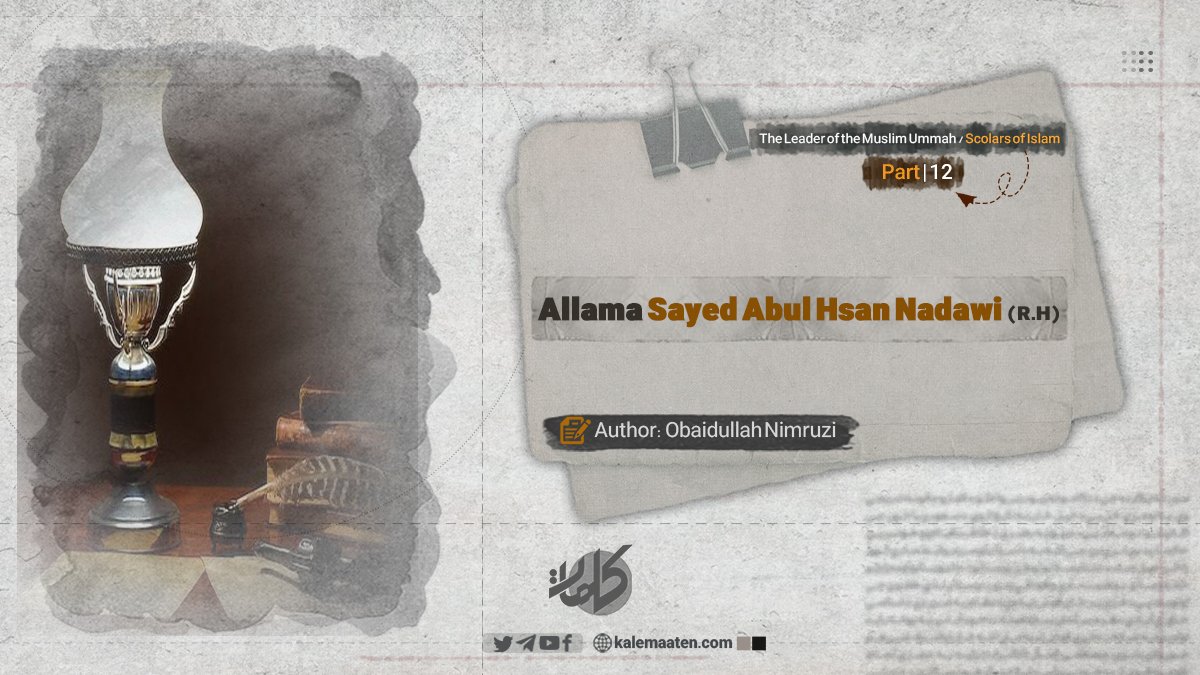
Author: Obaidullah Nimruzi
Allama Sayed Abulhasan Nadwi, “May Allah have mercy on him” (Part 12)
Travel to the Oppressed Land of Palestine
The land of Palestine is home to displaced and oppressed people who have spent many years fighting against the bloodthirsty and fully armed enemy of Zionism. In other words, it can be described as the land of brave fighters and self-sacrificing Mujahideen—those who have been struck by the bullets of enmity from the arrogant people of the world yet continue to fight. The shocking scenes have also shaken Imam Nadwi; rather, they will shake the consciousness of every Muslim.
Allama Nadwi writes: During this trip to Oman and Jerusalem, through trusted persons and officials, we became aware of painful facts that we could not have known through reading books. In short, the Palestinian crisis is a spectacle orchestrated by Britain and its allies, with Arab governments playing a role in its creation. This crisis has unfolded in the land of Palestine under the supervision of both the Islamic world and the Arab world. Consequently, the primary responsibility for the blood of the Palestinians lies with the Arab governments, their leaders, and the Arab League.
Maulana Nadwi then describes the condition of the Palestinians: they were like orphans and the impoverished, their hearts broken, their heads bowed in sadness. I found them wounded, sorrowful, and heartbroken; they expressed events that brought tears to the eyes and pain to the heart, and their trust in Arab leaders and the leaders of countries had generally eroded.
Maulana Nadwi then speaks in Damascus, in the presence of many intellectuals and educated individuals, about Palestine and its underlying factors. He identifies three main factors contributing to this crisis:
1, A lack of heartfelt motivation for sacrifice and selflessness in the name of belief and religion.
2. The dominance of reason over emotion, resulting in a decline of chivalry.
3. The absence of a great leader in the Arab nation and Arab countries whose thoughts and feelings are wholly dedicated to Palestine and its crisis, reminiscent of Salah al-Din Ayyubi. Qazi Ibn Shaddad wrote about him, saying: “Salah al-Din was like a mother whose only child is beheaded in her lap.”
Continues…


